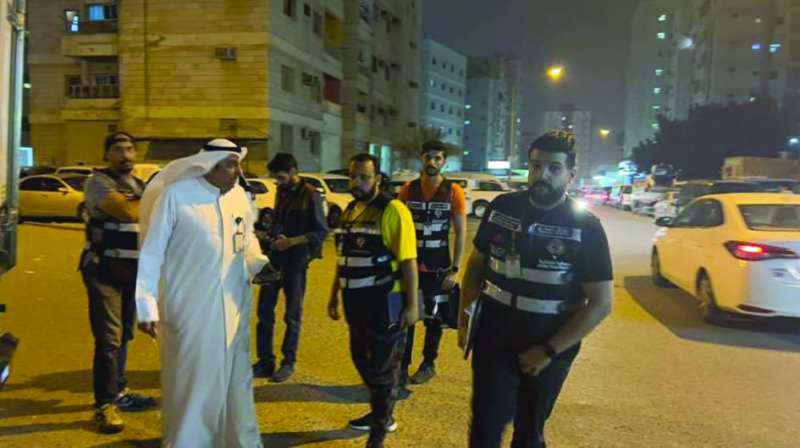On Wednesday night, the capital’s emergency team raided a warehouse that was operated in a house in the Jleeb Al-Shuyoukh area, which was used by a Bangladeshi gang to store large quantities of subsidized supplies, most notably rice, sugar and milk that was camouflaged and distributed in bags belonging to food companies.
The campaign came under the supervision of the head of the capital’s emergency team, Hamed Al-Dhafiri, and the participation of several inspectors from the Ministry of Commerce, in cooperation with the Electricity Emergency Department and the Residence and Manpower Affairs Investigation.
Hamid Al-Dhafiri stated that ” This is a grave violation punishable by the law because it is prohibited to sell goods covered by financial support from the state. Any person who has a ration card and who gives or sells ration will have his card stopped and blocked. He will also be summoned by the Ministry of Commerce and penalized.”
The residency affairs investigation officers seized all the workers at the site, and after checking them, it became clear that some of them violated the residency law, and some of them were loose domestic workers who engaged in commercial activities that were discovered at the same site.
Upon inspection the team further discovered that each room in the house was specialized in a type of material. There was a room that was filled with subsidized supplies, such as rice, sugar, oil and milk, and there was a room that contained medicines, a room for car spare parts, a room for family supplies, a grocery room, another for a barber, a restaurant, and a room filled with air conditioning gas cylinders. The gas cylinder room was classified as the most dangerous because it contained pipes of Hydrogen gas of different sizes, which were in danger of explosion.
The people seized were referred to the competent authority to issue a decision to deport them from the country. In addition, the owner of the property was summoned for interrogation on how the residential complex was transformed into a commercial complex. As for the medicines, that were seized, they were sent to the Ministry of Health to find out their source and where they were stolen from.

